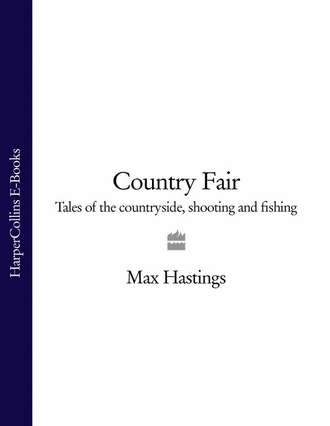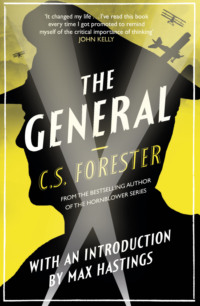
Полная версия
Country Fair

Country Fair
Tales of the Countryside, Shooting and Fishing
Max Hastings

For Nigel and Anna, with whom I have shared so many happy sporting memories over forty years
Table of Contents
Cover Page
Title Page
Introduction
1 Country Fair
2 Rhythm of the Seasons
3 The River Keeper
4 Sunshine and Showers
5 The Young Entry
6 Life at the Trough
7 Duffers’ Days
8 Hit and Miss
9 Love Affair With Labs
10 A Future for the Countryside
11 No Eye for a Horse
12 Poachers’ Roles
13 Naver Magic
14 With the Beaters
15 Every Shot a Record
16 An Idyll in Kenya
17 Tweed at Autumn
18 Pheasants
19 The English and the Scots
20 A Fishing Party
21 Rummage in the Gun Cupboard
22 Rough and Smooth in Cornwall
23 Hitting Some Low Notes
24 Glorious Grouse
25 Arctic Waters
26 Nightlife
27 Saying Please and Thank You
28 Level Pegging
29 New Ways and Old
30 Places we Know
31 Pigeons in the Offing
32 Marauders do it in the Rough
Index
By the same author
Copyright
About the Publisher
Introduction
IN THE EYES of most people likely to read this book, as well as in my own, the countryside is fundamental to the vision of the Britain which we love, and to which we bear allegiance. This is why we find it so distressing today to be ruled by a government which not only cares nothing for the rural community, but has shown itself contemptuously hostile to it. The countryside and its inhabitants are perceived by New Labour as anachronisms, reflecting traditions of patrician paternalism, plebeian deference and bloody pastimes which have no place in the pavement society Tony Blair and his party aspire to enforce. While Labour claims to have abandoned the old ideals of socialism, it displays a disdain for rights of private ownership of a single commodity – land – which would be deemed intolerably socialistic if applied to any other form of property. New duties of care are thrust upon landowners, even as a host of new rights of access are granted to the public. The government proposes a programme of housing development which, if it is fulfilled, will carpet in concrete great tracts of fields and woodland, poisoning the green lungs of this overcrowded island, and especially its south-eastern corner. Foremost among the aspirations of rural dwellers today is a desire to see those who rule us once again acknowledge the virtue and importance of Britain’s countryside to our society, not as a mere park in which the urban population can seek recreation at appointed hours on licence, but as a place where wilderness sustains its historic freedoms, not least those of the hunter, both animal and human.
This book is intended to serve two purposes: first, like my earlier country collections, to entertain rural sportsmen with tales of the pleasures which we share, embracing fields and streams, dogs and guns, rods and horses. Second, at a time when the traditional rural community feels imperilled as never before, I have included essays on two critical issues: the struggle to sustain our landscape, and the tensions between English and Scots, a source of concern to all of us for whom the Union of the two kingdoms means so much. I hope that these more sombre pieces will not jar on readers to whom I am otherwise seeking to offer a little bedside amusement.
Even in these troubled times for rural Britain, I cherish a spirit of optimism, inspired by the happiness which so many of us still gain from the countryside. One of my favourite pastimes, while casting a fly or waiting for a drive to begin, is to muse upon the same experiences in the days of our ancestors. A sense of continuity, of doing things which they did, in the old settings, is one of the deepest satisfactions of field sports. As they look down upon our doings with horse, rod and gun, how pampered they must think us! First, mobility offers free rein. We think nothing of driving from London to Wiltshire or Hampshire for a few hours’ fishing. I set out from Berkshire the other day to shoot in Devon, and came home easily enough the same evening. I am untroubled by driving to Wales to throw a line, then returning to sleep in my own bed. We can journey to Sutherland – or for that matter, to Russia or Iceland – inside a day.
We pay a price, in that some of the thrilling remoteness has gone from these places. So, too, has the intimacy which attached to a shooting party when guns, beaters and pickers-up lived within a few miles of the meeting place. Everybody knew each other, and the coverts. Today, one often meets a picker-up who has come from thirty miles away, or beaters who travel regularly from distant towns. Shooting and fishing parties forge their own sense of community, but this is seldom now rooted in local geography.
We are much better equipped to face the elements than earlier generations. My father shot in a tailor-made tweed jacket cut loose at the elbows. Waterproof it was not, any more than were his canvas Newmarket boots. Today, conditions must be very damp indeed for water to penetrate to the places where it made our grandparents so uncomfortable. Guns have not changed at all – indeed, many of us shoot with weapons built almost a hundred years ago. As a child, I enjoyed watching my father performing alchemist’s rites with powder and shot as he loaded his own cartridges. I occasionally experimented with the process myself, much to the alarm of anyone who later found my overcharged rounds in his gun. But it would be hard to argue that sporting life is poorer now that everybody fires factory-loaded ammunition. When did you last see someone having to use a cartridge extractor?
Fishing rods are wonderfully improved. One would have to be very sentimental to prefer an old greenheart to a new Sage. I am no longer even convinced that old reels are better: I would rather play a modern salmon on a modern reel. Of my father’s old tackle, I use only a couple of cane brook rods on chalk streams. Thank heaven fishermen no longer have to grease silk lines or dry gut casts at the end of a day!
Edwardian shooting parties provided opportunities for an orgy of adultery, facilitated by the fact that in large Norfolk or Yorkshire country houses, husbands and wives occupied separate bedrooms. Nowadays, when most of us inhabit more modest quarters, it requires considerable ingenuity for a couple bent on infidelity to find space to swing a cat, never mind themselves, amid a houseful of visiting guns. A friend once told me that a billiard table provided the most discreet rendezvous that she and her weekend quarry could commandeer for naughtiness. Edward VII would have been proud of her. A big shot like Sir Ralph Payne-Galway would have deplored her bloke’s frivolous attitude to more serious purposes.
My father sought to convince me that only activities in which one engages actively and individually – notably hunting, shooting and fishing – can properly be described as sports. Soccer and rugger, he suggested dismissively, are mere games. Most of those who call themselves ‘sports enthusiasts’ are content to spectate, usually from an armchair at home. The old boy has lost that argument, I am afraid. Games reign supreme in public esteem, however dismaying the behaviour of some of those who play them.
The saddest change since father’s era is the fungus-growth of hostility towards traditional sports. The other day, I was driving a car full of guns along a bridlepath on the Berkshire Downs. Our convoy was careful to slow and steer aside from ramblers we met. I tried ‘Good mornings’ out of the window to each of them, but was rewarded only by stony stares. They had seen and heard us banging away, and did not like it. The sight of a pheasant falling wounded or dead from the sky is repugnant to many such rural visitors. It seems sensible to spare their sensitivities by seeking to shoot discreetly. It is no longer a good idea to run drives within sight of a public road.
The banning of fox-hunting signals a threat to the future of all English field sports, as well as a body-blow to the historic life of the countryside. For centuries, hunts have provided a focus for the social lives of many rural communities. At a stroke, and with malice aforethought, the great tradition reflected in the art of Stubbs, Alken and a thousand lesser brushes, and by the pens of Trollope, Surtees, White-Melville, Siegfried Sassoon, has been swept away. Now that Parliament has established the principle that it is wrong to kill one species of wildlife for pleasure, there is no logical reason why politicians should not move against shooting and fishing also.
I am not optimistic about the prospects for sustained defiance of the hunting ban. Those against whom it is directed are instinctively law-abiding people, even if they are now also angry ones. Some symbolic meets will continue for a time. Drag-hunting may prosper. Essentially, however, fox-hunting and legal hare-coursing – the Labour Party is indifferent to illegal coursing by travellers, which raises no class-war blood-lust on its Commons benches – will atrophy. Many of us whose own lives are not directly affected feel a surge of sorrow for what this measure says about the society to which we belong, in which halal butchery remains acceptable and the use of soft drugs is tolerated, but testing horses, riders and hounds in pursuit of a fox is not. The hunting ban is the act of an urban dictatorship, intolerant of minority cultures which exist outside parameters determined by itself.
There is nothing new about the contempt of intellectuals and radicals for rural pastimes. Joseph Addison remarked scornfully almost three centuries ago: ‘Hunting is not a proper employment for a thinking man.’ The unwelcome twenty-first-century novelty is the determination of an urban-based ruling political class to regard a belief in its own moral superiority as sufficient mandate to persecute a rural minority which it despises. It cares nothing for the wise observation of Plato a couple of millennia ago: ‘There can be no more important kind of information than the exact knowledge of a man’s own country; and for this as well as for more general reasons of pleasure and advantage, hunting with hounds and other kinds of sport should be pursued by the young.’ The hunting ban is the act of a government set upon creating a new Britain in its own image, confident that it faces no political opposition strong enough to frustrate its purposes.
We become a drearier and less diverse society with the loss of the pageantry of English fox-hunting, its thrusters and eccentrics, its beaux and belles, its happy meets and silly squabbles. The challenge now, for those who cherish the traditional countryside, is to do everything in our power to ensure that sport with horse and hounds is not altogether lost, and that the other great rural pastimes continue to prosper. The government assures us that it has no intention of legislating against shooting and fishing. We would be rash to swallow such bromides from an administration which has shown itself chronically deceitful on a host of other issues. I have often written about the importance of supporting the countryside organisations, both those which are responsible for sport – the Countryside Alliance, the British Association for Shooting and Conservation, the Game Conservancy – and those which fight for our rural landscape and character, notably the Campaign to Protect Rural England. Today, when so much is at risk, this seems more important than ever. Sceptics shrug: ‘What’s the point? Nobody has been able to stop the hunting ban, and nobody can stop this government attacking shooting, or building millions more houses on green fields.’ Yet, just as no thoughtful countryman regrets the struggle to save fox-hunting, which delayed legislation for years, so we cannot now succumb to defeatism about shooting, fishing and uncontrolled housing development. If we do not fight, then our sports and our landscape do not deserve to survive.
We must make strategy in the consciousness that we might be ruled by Labour governments for a decade. Tony Blair’s party thinks so, too. Political arrogance fortified Labour’s enthusiasm for banning fox-hunting. It imbues the party’s MPs with a dangerous boldness about the possibilities for going further in their crusade ‘irreversibly to change the nature of British society’. On our side, in seeking to resist new encroachments, we should fight a non-party battle, on an environmental and libertarian platform. Economic arguments about jobs and rural income at stake butter few parsnips with our opponents, for the numbers are too small.
If field sports ally themselves explicitly with the Tories then, bluntly, we anchor ourselves to a party which cannot for the foreseeable future offer useful aid. We face a cultural issue, which extends far beyond field sports. Britain is changing. Those of us who live familiar rural lives amid our rose gardens and the routine of planting broad beans, casting a fly for trout, pursuing grouse, decoying pigeons, should perceive that we inhabit a precious yet increasingly isolated social capsule. It is magnificent, but in the eyes of many of our fellow-countrymen, it represents a charade rather than reality. Out there beyond the gate, there is another world far removed from ours, and politically much more powerful. It is only necessary to ride on a London tube and glance at one’s neighbours in the carriage to perceive its nature. Many inhabitants of New Britain and Young Britain possess no interest in studying Old Britain’s history or in perpetuating its culture. From our viewpoint, it is futile to waste time lamenting this state of affairs. If we want our fragment of society to survive, we must achieve an accommodation with this new world, which is mistrustful of old elites, inherently sceptical of old values.
A while back, a Field reader who proudly described himself as a ‘toff’ accused me of inverted snobbery. Yet it seems only common sense to recognise that the people banning fox-hunting are motivated chiefly by a commitment to class warfare, not animal welfare. One Labour minister has acknowledged explicitly that the measure represented, in the eyes of himself and his comrades on the Commons benches, ‘revenge for the miners’. Tony Blair and his successors may only be dissuaded from further assaults on field sports if they perceive that such action would antagonise those whom they classify as ‘ordinary people’, rather than merely an old ‘privileged class’ whom it delights them to punish.
The most admirable quality in politics, as in life, is generosity of spirit. What was done in the House of Commons in 2004 represented a great meanness. Henceforward, to paraphrase Hugh Gaitskell in a somewhat different context: we must fight, fight and fight again to save the way of life we love. We can succeed only by representing this as a battle for social liberty and for the rural environment, not by positioning ourselves behind a conservative or Conservative barricade.
Our forefathers would have recoiled, of course, from the necessity of justifying to the urban population the chosen activities of the rural community. They regarded the pursuit of wild quarry as the most natural of human activities, and they were right. Yet they might also be cheered that in the twenty-first century we are still doing many things which they did, in a manner not so different from that which they knew. Politics casts its sorry shadow, yet politics seems a wonderfully long way away on a June day at a trout lake, or on a fine December morning, when one hears beaters tapping through the wood and the first cock exploding with a clatter from the trees. The past may have seemed less complicated than the present, but our own sporting experience retains an enchantment that would cheer the shades of our ancestors.
This is the third collection of rural writings I have published. I should acknowledge a debt to Robert Lacey, my editor at HarperCollins, who does so much to smooth the eccentricities of my prose, even when these concern implausible nuances of field sports. Much of the book is adapted from pieces I have written over recent years for The Field, to whose editor Jonathan Young I owe much. He has become a cherished friend as well as one of Britain’s staunchest and shrewdest standard-bearers for the cause of the countryside. I have also included here a chapter based on speeches I have made on behalf of the Campaign to Protect Rural England, concerning the other great countryside issues – the preservation of our green spaces and the way of life of those who inhabit them. The CPRE is strictly neutral on field sports. I should stress that the views expressed in this book are personal, and do not represent those of that body, whose business and membership are fighting for our landscape. The CPRE rightly avoids engagement in such contentious matters as fox-hunting. But preserving our countryside is a challenge embracing many strands. Even if different country people fight different battles, these should be perceived as complementary, not contradictory.
I hope readers will gain pleasure from sharing some of my experiences of rural and sporting life, even if almost all of you are more skilful in their practice than myself. In describing my own doings, the only concession I make to discretion is sometimes to change the names of characters with whom I have shared them, to spare their blushes, if not my own. I am conscious that these writings reflect a privileged experience. In recent years, I have been lucky enough to visit some of the finest rivers and shoots in Britain and abroad, and to enjoy wonderful sporting opportunities. It was not always so. I spent my early sporting life, as most of us do, picking crumbs from beneath the table. My natural habitats for many years were modest day-ticket fisheries and walked-up hedges. I reached great grouse moors and salmon pools only relatively late in the day. I have fed from the silver spoon only after a long acquaintance with a wooden one, which I hope is some excuse for extolling the joys of butts and double-gun days.
I have called this collection Country Fair, which reflects the range of joys and beauties we encounter in pursuing our romance with rural Britain. The title also represents a gesture of filial affection, as my first chapter will explain.
Max Hastings
Il Pinquan, Kenya
March 2005
1 Country Fair
AS ANYONE WHO reads my writings will have noticed over the years, I am addicted to rural history. Not to nostalgia, because we should recognise that, in the countryside as elsewhere, over the last half-century some things have grown better rather than worse. There is no surer shortcut to senility than forever to be lamenting a lost past. Yet it is always pleasing to relate the world we know today to that which our parents and grandparents inhabited. I have been thumbing through the bound volumes of a now-forgotten magazine named Country Fair, which flourished for a time in the 1950s, half a century ago. It holds a special charm for me, because my father created and edited it alongside that great Wiltshire farmer and writer A.G. Street.
Successive issues of Country Fair captured snapshots of a world I can just remember, in which the combine harvester was slowly replacing the binder and thresher; BSA advertised a single-barrel shotgun (‘hitherto for export only’) at £18.2s.11d; and ‘B.B.’ in his shooting column urged the merits of a stuffed cat as a surefire lure for carrion crows. J. Hughes-Parry described how he gaffed a thirty-seven-pound spring salmon for his wife Pat on the Welsh Dee on 26 March, among a host of lesser monsters which fell to his rod that season. Jack Ivester-Lloyd wrote about hunting clothes, telling me something I never knew: ‘The custom observed by many hunts of asking farmers who come out with them to wear black coats and hunting caps came into being for a very good reason. It is done so that others may easily recognise the men over whose land they may be riding and who, therefore, should be treated with special courtesy.’ Arthur Street described, with copious diagrams, the art of setting a course to plough a field.
My mother, Anne Scott-James, wrote deploring the fashion in which old cottages in our villages were being pulled down. Landlords found this cheaper than making repairs, when statutory controls restricted many rents to three or four shillings a week. Mother’s rage was inspired by the demolition of a very old thatched cottage immediately opposite our own. ‘The Whitehall bureaucrats say people must be cleared out of sub-standard properties,’ she wrote, ‘and they declaim violently against “country slums”. They regard a man with money to spend on converting an old cottage with hatred, and talk of “the wrong people” getting homes…As fast as new houses are built in the country, old ones are pulled down. It doesn’t make sense.’
The magazine’s ‘topic of the month’ for July 1951 was that of farm holidays. Agriculture needed a lot of scarce seasonal labour between July and November – ‘It wants twelve to reap what it takes one man to sow.’ For several decades in the early and mid-twentieth century, townsmen were encouraged to take cheap holidays by boarding or camping on a farm. In high summer they paid thirty-five shillings a week for their keep – £1.75 in modern money – and could earn one shilling and sixpence an hour – around 7p – for their labour. By October and November, the rate for a week’s bed and rations on a farm had fallen to a pound, and wages had risen to one shilling and ninepence.
Ralph Wightman, a Dorset farmer who was also a well-known writer of the period, urged the virtues of the farm camper not only to provide a hand, ‘but because his labour holiday will show him the real country. He will see the fields as a workshop instead of a playground. He will go back with a different feeling about our British heritage.’ Would that it was feasible to do the same today, for a new generation of urban dwellers! Elsewhere in Country Fair that summer of 1951, Lady Patricia Ward explained how she rented a Suffolk farmhouse for £60 a year, and persuaded her trustees to release the money to equip and decorate it from top to bottom for £1,190. A village dweller, Evelyn Gibbs, described how mains water was at last being connected to her hamlet, provoking head-shaking among elderly inhabitants about the consequences of this reckless innovation, when main drains were still lacking.
Maurice Burton, the magazine’s resident naturalist, lamented the decline of the dormouse, which he blamed upon the spread of grey squirrels. The famous amateur rider and breeder John Hislop wrote about the charms and horrors of owning a racehorse. Training fees were running at an extravagant seven guineas a week, plus 10 per cent of winnings. A jockey received five guineas for a losing ride and seven for a winner. It cost £100 to enter a horse for the Derby.
Here is some miscellaneous rural information from the same page: did you know that Northamptonshire is the only county of England to have nine others abutting on it? Or that until the late seventeenth century, July was called Jooly? Or that a Leicestershire acre used to be 2,308\\¾ square yards, and a Westmoreland one 6,760 square yards? In Anthony Armstrong’s essay on Sussex, he quotes a disobliging comment on the county by one Dr Burton in 1751: ‘Why is it that the oxen, the swine, women and all other animals are so long-legged in Sussex? May it be from the difficulty of pulling the feet out of so much mud?’







